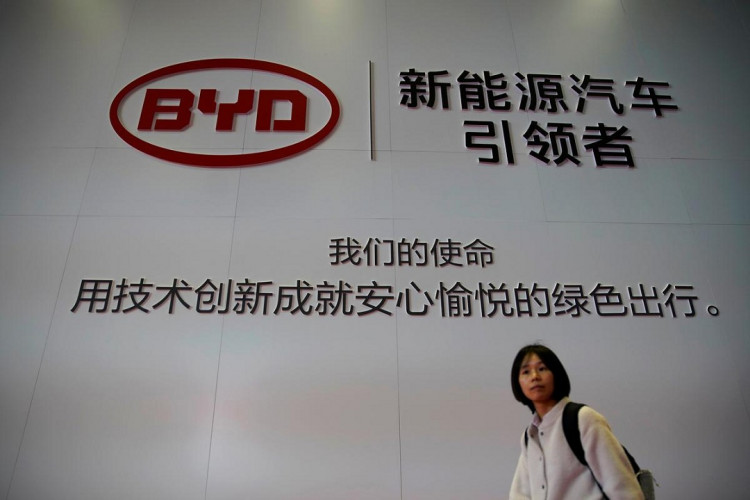BYD Co Ltd, China's leading electric vehicle (EV) manufacturer, is rapidly narrowing the global sales gap with Ford Motor Co. as it continues its aggressive expansion in the EV market. The Chinese automaker, which exclusively produces electric and hybrid vehicles, has experienced a surge in sales, positioning itself among the world's top automakers.
As of the end of October, BYD reported total sales of over 3.25 million vehicles for the year, marking a 36% increase compared to the same period in 2023. In October alone, BYD sold more than half a million vehicles, a 36% rise from the previous year. If this trend continues, the company's total 2024 sales could surpass 4 million units, putting it within striking distance of Ford's 2023 global sales of 4.4 million vehicles. Bloomberg recently highlighted BYD's potential to secure a place among the world's top ten automakers, thanks to its rapidly growing market presence.
The impressive sales figures are backed by a significant ramp-up in production capacity. BYD Executive Vice President He Zhiqi revealed on Chinese social media platform Weibo that the company hired more than 200,000 workers between August and October to support increased production, resulting in over 1.3 million new energy vehicles (NEVs) produced during that period.
BYD's growth has been particularly pronounced in its domestic market. According to the China Passenger Car Association (CPCA), BYD retained the top position in China's NEV market in October, achieving a 36.1% market share. The automaker sold 431,367 passenger NEVs at retail in October, representing a 67.2% increase from the previous year. In comparison, Tesla, a key competitor in China, saw its market share dip to 3.4% from 6.4% in September, despite a 41.4% increase in year-over-year sales in October. Tesla's retail sales in China totaled 40,485 units for the month, with 27,795 of those vehicles earmarked for export from its Shanghai factory.
While BYD has overtaken Tesla in terms of quarterly revenue for the first time since 2022, its profitability still lags. For the third quarter, BYD's operating revenue rose 24% to 201.12 billion yuan ($28.25 billion), compared to Tesla's $25.18 billion. However, Tesla reported a net income of $2.167 billion, whereas BYD's diluted earnings per share came in at 4 yuan (56 cents).
BYD's focus on expanding its market share has also been supported by its strategy of discontinuing combustion-engine vehicle production in 2022, allowing it to concentrate exclusively on electric and hybrid models. This move has contributed to its rapid growth and increasing influence in the global automotive market.
Industry analysts point to BYD's ability to mass-produce vehicles quickly as a key competitive advantage. The company's robust civil-military fusion approach has enabled it to scale production capacity at a pace unmatched by many of its rivals. BYD's NEV retail sales in China from January to October reached nearly 2.9 million units, up 35.2% from the previous year, giving it a 34.8% market share.
"BYD's dominance in China's NEV market highlights its capacity to adapt and scale in a highly competitive sector," said a market analyst familiar with Chinese automotive trends. The company's strong presence in its domestic market has also translated into increased influence globally, with plans to further expand into international markets.






